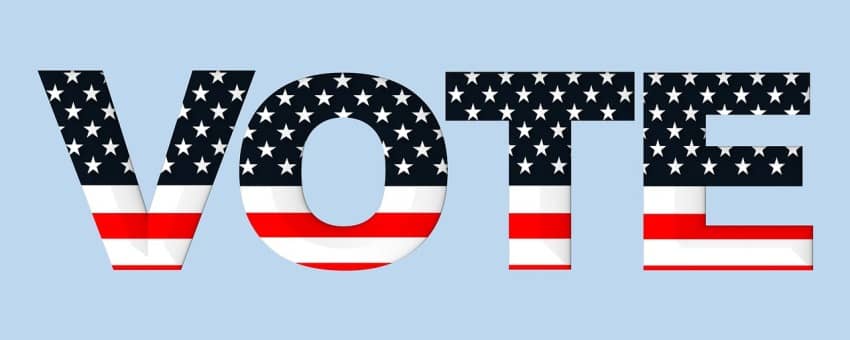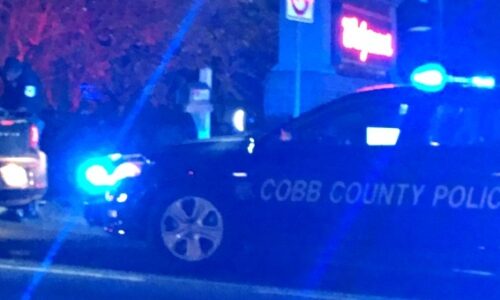Voter Fraud Laws in Georgia

Voter & Election Fraud Laws in Georgia
Arrests for voter fraud crimes for local, state and national elections are on the rise. From conspiracy and solicitation to commit election fraud to ballot harvesting and trafficking, this article discusses types of voter fraud and voter fraud penalties.
How Serious are Election Related Criminal Charges?
Questions and allegations of various forms of election fraud have grown substantially in the past 10 years. The clamor over voting irregularities has driven numerous law enforcement agencies to investigate and protect the integrity of voting processes. People alleged to have committed election fraud may face State and Federal charges that can result in prison sentences from one to ten years.
Arrests and Prosecutions Are Happening
In just one month (September 2020) the Georgia State Election Board on Wednesday referred 35 cases of election-law violations to the attorney general or local district attorneys for criminal prosecution. Per a website article published in September 2020, by the Georgia Secretary of State ‘s office, “Among the cases bound over for prosecution Wednesday were four incidents of felons voting or registering to vote, four cases of non-citizens voting or registering to vote and one case of misplaced ballots during the 2020 general election, which didn’t change the outcome but did affect the total. Also bound over for prosecution were canvassers for two organizations trying to register people to vote, including one who allegedly submitted registration applications they knew were false.”.1
Anyone under investigation, or tied to any acts of election fraud, should contact an experienced defense lawyer for a confidential consultation.
What Are Types of Voter Fraud?
The website owned and managed by Heritage.org has listed nine common acts that constitute voter fraud. Their list is as follows:
- Fraudulent Use Of Absentee Ballots Requesting absentee ballots and voting without the knowledge of the actual voter; or obtaining the absentee ballot from a voter and either filling it in directly and forging the voter’s signature or illegally telling the voter who to vote for.
- Ineligible Voting Illegal registration and voting by individuals who are not U.S. citizens, are convicted felons, or are otherwise not eligible to vote.
- Impersonation Fraud At The Polls Voting in the name of other legitimate voters and voters who have died, moved away, or lost their right to vote because they are felons, but remain registered.
- Buying Votes Paying voters to cast either an in-person or absentee ballot for a particular candidate.
- Ballot Petition Fraud Forging the signatures of registered voters on the ballot petitions that must be filed with election officials in some states for a candidate or issue to be listed on the official ballot.
- Duplicate Voting Registering in multiple locations and voting in the same election in more than one jurisdiction or state.
- False Registrations Voting under fraudulent voter registrations that either use a phony name and a real or fake address or claim residence in a particular jurisdiction where the registered voter does not actually live and is not entitled to vote.
- Altering The Vote Count Changing the actual vote count either in a precinct or at the central location where votes are counted.
- Illegal “Assistance” At The Polls Forcing or intimidating voters—particularly the elderly, disabled, illiterate, and those for whom English is a second language—to vote for particular candidates while supposedly providing them with “assistance.”
Chances of Being Caught Are Increasing
In April of 2022, the Georgia legislature passed the Criminal Record Responsibility Act. This new law gives the Georgia Bureau of Investigation (GBI) wide latitude to investigate allegations of voter fraud, allowing it to initiate the inquiries and subpoena people independently.
Specifically, it empowers the GBI to issue a subpoena to any person, and for documents or items from electronic devices in investigating elections. Failure to obey a subpoena may be punished as contempt of court, the bills states.
Punishment for Election Crimes in Georgia
For an idea on punishments for election fraud cases in Georgia, note where the FindLaw.com website cites O.C.G.A. § 21-2-600, “Except as otherwise provided, any person convicted of a felony under this chapter shall be punished by a fine not to exceed $10,000.00 or imprisonment of not less than one year nor more than ten years, or both, in the discretion of the trial court, or may be punished as for a misdemeanor in the discretion of the trial court.”. 3
Additional laws in Georgia for voting and election crimes:
- O.C.G.A. § 21-2-566 Interference With Primaries and Elections Generally
Any person who:
1. Willfully prevents or attempts to prevent any poll officer from holding any primary or election under this chapter;
2. Uses or threatens violence in a manner that would prevent a reasonable poll officer or actually prevents a poll officer from the execution of his or her duties or materially interrupts or improperly and materially interferes with the execution of a poll officer’s duties; 3. Willfully blocks or attempts to block the avenue to the door of any polling place;
4. Uses or threatens violence in a manner that would prevent a reasonable elector from voting or actually prevents any elector from voting;
5. Willfully prepares or presents to any poll officer a fraudulent voter’s certificate not signed by the elector whose certificate it purports to be;
6. Knowingly deposits fraudulent ballots in the ballot box;
7. Knowingly registers fraudulent votes upon any voting machine; or
8. Willfully tampers with any electors list, voter’s certificate, numbered list of voters, ballot box, voting machine, direct recording electronic (DRE) equipment, electronic ballot marker, or tabulating machine
shall be guilty of a felony and, upon conviction thereof, shall be sentenced to imprisonment for not less than one nor more than ten years or to pay a fine not to exceed $100,000.00, or both. - O.C.G.A. § 21-2-571 Voting by unqualified elector or giving false information
Any person who votes or attempts to vote at any primary or election, knowing that such person does not possess all the qualifications of an elector at such primary or election, as required by law, or who votes or attempts to vote at any primary in violation of Code Section 21-2-223 or who knowingly gives false information to poll officers in an attempt to vote in any primary or election shall be guilty of a felony and, upon conviction thereof, shall be sentenced to imprisonment for not less than one nor more than ten years or to pay a fine not to exceed $100,000.00, or both. - O.C.G.A. § 21-2-572 Repeat voting in same primary or election
Any person who votes in more than one precinct in the same primary or election or otherwise fraudulently votes more than once at the same primary or election shall be guilty of a felony and, upon conviction thereof, shall be sentenced to imprisonment for not less than one nor more than ten years or to pay a fine not to exceed $100,000.00, or both. - O.C.G.A. § 21-2-573 Absentee voting by unqualified elector
Any person who votes or attempts to vote by absentee ballot at any primary or election under Article 10 of this chapter who knows that he or she is not qualified to vote shall be guilty of a felony and, upon conviction thereof, shall be sentenced to imprisonment for not less than one nor more than ten years or to pay a fine not to exceed $100,000.00, or both. - O.C.G.A. § 21-2-574 Unlawful possession of ballots
Any person, other than an officer charged by law with the care of ballots or a person entrusted by any such officer with the care of the same for a purpose required by law, who has in his or her possession outside the polling place any official ballot shall be guilty of a felony. - O.C.G.A. § 21-2-575 Counterfeit ballots or ballot labels; sample or facsimile ballots
(a) Any person who makes, constructs, or has in his or her possession any counterfeit of an official ballot or ballot label shall be guilty of a felony.
(b) This Code section shall not be applied to facsimile ballots printed and published as an aid to electors in any newspaper generally and regularly circulated within this state, so long as such facsimile ballot is at least 25 percent larger or smaller than the official ballot of which it is a facsimile. This Code section shall not be applied to any sample or facsimile ballots or ballot labels obtained under Code Section 21-2-400. Nothing in this Code section shall be so construed as to prohibit the procurement and distribution of reprints of the said newspaper printings; nor shall it be so construed as to prohibit the preparation and distribution by election officials of facsimile ballots and ballot labels or portions thereof, provided that they are of a different color and at least 25 percent larger or smaller than the official ballots or ballot labels.
(c) Nothing in this Code section shall be so construed as to prohibit any person from procuring and distributing reprints or portions of reprints of any sample or facsimile ballots or ballot labels as provided in Code Section 21-2-400, provided such reprints or portions of reprints are of a different color and at least 25 percent larger or smaller than the official ballots or ballot labels. - O.C.G.A. § 21-2-580 Tampering with, damaging, improper preparation of, or prevention of proper operation of voting machines or electronic ballot markers or tabulating machines.
Any person who:
(1) Unlawfully opens, tampers with, or damages any voting machine or electronic ballot marker or tabulating machine to be used or being used at any primary or election;
(2) Willfully prepares a voting machine or an electronic ballot marker or tabulating machine for use in a primary or election in improper order for voting; or
(3) Prevents or attempts to prevent the correct operation of such electronic ballot marker or tabulating machine or voting machine
shall be guilty of a felony. - O.C.G.A. § 21-2-587 Frauds by poll officers
Any poll officer who willfully:
(1) Makes a false return of the votes cast at any primary or election;
(2) Deposits fraudulent ballots in the ballot box or certifies as correct a false return of ballots;
(3) Registers fraudulent votes upon any voting machine or certifies as correct a return of fraudulent votes cast upon any voting machine;
(4) Makes any false entries in the electors list;
(5) Destroys or alters any ballot, voter’s certificate, or electors list;
(6) Tampers with any voting machine, direct recording electronic (DRE) equipment, or tabulating computer or device;
(7) Prepares or files any false voter’s certificate not prepared by or for an elector actually voting at such primary or election; or
(8) Fails to return to the officials prescribed by this chapter, following any primary or election, any keys of a voting machine, ballot box, general or duplicate return sheet, tally paper, oaths of poll officers, affidavits of electors and others, record of assisted voters, numbered list of voters, electors list, voter’s certificate, spoiled and canceled ballots, ballots deposited, written, or affixed in or upon a voting machine, DRE memory cards, or any certificate or any other paper or record required to be returned under this chapter shall be guilty of a felony and, upon conviction thereof, shall be sentenced to imprisonment for not less than one nor more than ten years or to pay a fine not to exceed $100,000.00, or both. - O.C.G.A. § 21-2-601 Any person who intentionally uses the list of electors provided for in Code Section 21-2-225 for commercial purposes shall be guilty of a misdemeanor.
- O.C.G.A. § 21-2-602 It shall be illegal to receive, accept, offer, or provide compensation for soliciting persons to register to vote based upon the number of persons registered and any person who knowingly receives, accepts, offers, or provides such compensation on such basis shall be guilty of a misdemeanor.
- O.C.G.A. § 21-2-603 A person commits the offense of conspiracy to commit election fraud when he or she conspires or agrees with another to commit a violation of this chapter. The crime shall be complete when the conspiracy or agreement is effected and an overt act in furtherance thereof has been committed, regardless of whether the violation of this chapter is consummated. A person convicted of the offense of conspiracy to commit election fraud involving a violation of this chapter which is a felony shall be punished by imprisonment for not less than one year nor more than one-half the maximum period of time for which he or she could have been sentenced if he or she had been convicted of the crime conspired to have been committed, by one-half the maximum fine to which he or she could have been subjected if he or she had been convicted of such crime, or both. A person convicted of the offense of conspiracy to commit election fraud involving a violation of this chapter which is a misdemeanor shall be punished as for a misdemeanor.
- O.C.G.A. § 21-2-604 (a)(1) A person commits the offense of criminal solicitation to commit election fraud in the first degree when, with intent that another person engage in conduct constituting a felony under this article, he or she solicits, requests, commands, importunes, or otherwise attempts to cause the other person to engage in such conduct.
(2) A person commits the offense of criminal solicitation to commit election fraud in the second degree when, with intent that another person engage in conduct constituting a misdemeanor under this article, he or she solicits, requests, commands, importunes, or otherwise attempts to cause the other person to engage in such conduct.
(b)(1) A person convicted of the offense of criminal solicitation to commit election fraud in the first degree shall be punished by imprisonment for not less than one nor more than three years.
(2) A person convicted of the offense of criminal solicitation to commit election fraud in the second degree shall be punished as for a misdemeanor.
(c) It is no defense to a prosecution for criminal solicitation to commit election fraud that the person solicited could not be guilty of the crime solicited.
(d) The provisions of subsections (a) through (c) of this Code section are cumulative and shall not supersede any other penal law of this state.
Midemeanor Election Crimes
- O.C.G.A. § 21-2-576 Destroying, defacing, or delaying delivery of ballots. Any person who willfully destroys or defaces any ballot or willfully delays the delivery of any ballots shall be guilty of a misdemeanor.
- O.C.G.A. § 21-2-577 Improper removal of ballots from book of official ballots. Any person removing any ballot from any book of official ballots, except in the manner provided by this chapter, shall be guilty of a misdemeanor.
- O.C.G.A. § 21-2-578 Unfolding, opening, or prying into ballots. Any person who, before any ballot is deposited in the ballot box as provided by this chapter, willfully unfolds, opens, or pries into any such ballot with the intent to discover the manner in which the same has been marked shall be guilty of a misdemeanor.
- O.C.G.A. § 21-2-579 Fraudulently allowing ballot or voting machine to be seen; casting unofficial ballot; receiving unauthorized assistance in voting. Fraudulently allowing ballot or voting machine to be seen; casting unofficial ballot; receiving unauthorized assistance in voting.
Federal Election & Voter Crimes
The Federal government has an extensive set of regulations and laws regarding elections and voting practices. The United States Department of Justice published an Federal Election Fraud Fact Sheet. The opening statement in the document states, “Most issues concerning the administration and conduct of elections are governed and regulated by state law and are best addressed by state and local election officials. Federal law enforcement and prosecutorial authorities have jurisdiction to investigate and, when appropriate, prosecute election fraud in the following circumstances:”.4
The document further states:
Federal Criminal Jurisdiction
Federal criminal jurisdiction over the activities described below can generally be obtained when those activities take place:
- In elections where a federal candidate’s name is on the ballot.
- In any election (federal or nonfederal), when the fraud involves the necessary participation of an election official acting “under color of law.”
- In connection with voter registration. The fact that voter registration is “unitary” in all 50 States (a citizen registers once to become eligible to vote for both federal and nonfederal candidates) confers federal jurisdiction regardless of the type of election.
- In connection with the misuse, or unauthorized trespass, involving a computer system used in connection with an election, to the extent that the misuse or trespass is conducted “under color of law.”
Conduct Actionable as Federal Election Fraud, Intimidation, or Suppression
- Paying voters to register to vote, or to vote in elections where a federal candidate’s name is on the ballot (52 U.S.C. § 10307, 18 U.S.C. § 597), or through the use of the mails in those States where vote buying is a “bribery” offense (18 U.S.C. § 1952), or in federal elections in those States where purchased votes or registrations are voidable under state law (52 U.S.C. § 20511).
- Multiple voting in a federal election, voting for individuals in a federal election who do not personally participate in the voting act attributed to them, or impersonating voters (52 U.S.C. §§ 10307, 20511).
- Intimidating voters through physical duress in any election (18 U.S.C. § 245(b)(1)(A)); or through physical or economic intimidation in connection with registration to vote or voting in a federal election (52 U.S.C. § 20511, 18 U.S.C. § 594).If the victim is a federal employee, intimidation in connection with all elections is prohibited (18 U.S.C. § 610).
- Malfeasance by election officials, acting “under color of law,” such as diluting valid ballots with invalid ones (so-called “ballot box stuffing”), rendering false vote tabulations, or preventing valid voter registrations or votes from being given effect in any election (18 U.S.C. §§ 241, 242), as well as in elections where federal candidates are on the ballot (52 U.S.C. §§ 10307, 20511).
- Qualifying fictitious individuals to vote in federal elections by placing fictitious names on voter registration rolls (52 U.S.C. §§ 10307, 20511); or through “color of law” in any election (18 U.S.C. §§ 241, 242).
- Preventing or impeding qualified voters from participating in an election where a federal candidate’s name is on the ballot through such tactics as disseminating false information as to the date, timing, or location of federal voting activity (18 U.S.C. §§ 241, 242).
- Registering to vote, or voting in a federal election, by persons who are not entitled to vote under applicable state law, most notably persons who have committed serious crimes, and persons who are not United States citizens (18 U.S.C. §§ 1015(f), 611, and 52 U.S.C. § 20511).
- Falsely claiming United States citizenship in connection with registering to vote or voting in any election (18 U.S.C. §§ 911, 1015(f)).
- Voting in a federal election by anyone who is not a United States citizen in those States where citizenship is a requisite for the franchise (currently all 50 States) (18 U.S.C. § 611).
- Providing false information concerning a voter’s name, address, or period of residence in order to register to vote, or to vote in a federal election (52 U.S.C. §§ 10307, 20511).
- Causing the submission of voter registrations in any election, or of ballots in federal elections, that are materially defective under applicable state law (52 U.S.C. § 20511).
- Ordering, keeping, or having under one’s control any troops or armed men at any polling place in a general or special election, if one is a civil or military officer or employee of the United States government (18 U.S.C. § 592).
If you are under investigation for, or charged with, election or voter fraud crimes, we strongly encourage you to contact our defense law experts at 678-880-9360.
FOOTNOTES
- 1 GA SoS Staff, “State Election Board Refers Voter Fraud Cases for Prosecution”, September 11, 2020, Available from Georgia Secretary of State
- 2 Heritage Foundation Staff, “Election Fraud Cases”, December 2018, Available from Heritage Foundation
- 3 FindLaw Staff, “Georgia Code Title 21. Elections § 21-2-600”, April 14, 2021, Available from FindLaw
- 4 DoJ Staff, “Federal Election Fraud Fact Sheet”, February 2, 2016, Available from United States Department of Justice
- Photo by Elle Ritter on Pixabay


